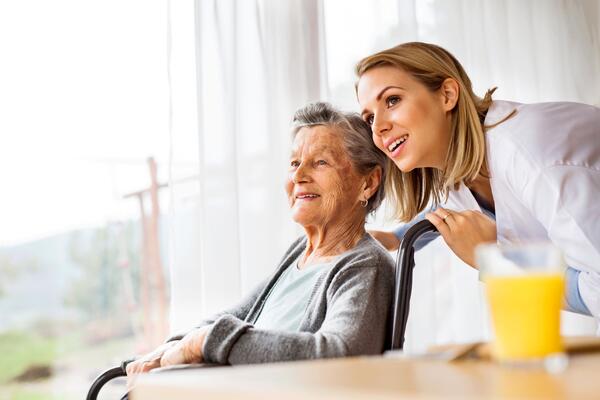
A Guide To Caring For A Senior At Home
Caring for a senior at home can be a whole lot to handle. For a caregiver like you, it can be challenging to remember all the things they need and how to do them. Also, you need to consider many things: their medical needs, physical capabilities, emotional well-being, and so on.
Then there's the fact that your loved one is aging, which means they may already be struggling with leading their daily lives. As a concerned family member, you want them to live safely and comfortably in their own home as much as possible. With this guide, you'll learn about almost everything you need to keep seniors safe and comfortable while they’re at home.
Set Up A Caregiver Support System
Setting up a caregiver support system is helpful if you're caring for a senior at home. This can be a network of friends, family members, and other caregivers who can provide encouragement, advice, and help when needed.
There are many challenges when you're caring for seniors at home. You may feel overwhelmed or exhausted by the responsibility of providing care to someone who used to be independent and self-sufficient. It's normal to feel this way sometimes. Seek for help as you deem necessary.
Take Up A First Aid Course And Other Related Topics
To help you out in performing your caregiving duties properly, you can study first aid UK and other related senior care topics. In the United Kingdom, having first aid qualification is helpful in knowing more about providing top-notch senior care and support.
Senior care courses not only provide you with textbook information about caring for a senior at home; they also allow you to apply techniques and methods in real-life scenarios.
Plan Ahead For Emergencies
When caring for a senior at home, planning for emergencies is essential. It's important to know what to do in case of an emergency yet also how to prevent them from happening in the first place.
Here are some tips to help you plan for emergencies:
- Have all the resources before they're needed. If there's an emergency, you don't want to have to wait for someone else to get them or run around looking for them. Make sure that everything that'll be needed is already in your home. This includes medical information, first aid medications, and supplies like oxygen tanks.
- Ensure that everyone knows where everything’s located at home. If there ever is an emergency, everyone can find the supplies they need quickly and easily without wasting time looking for them.
- Have a list of emergency numbers ready; family members can use it or give it out to friends and neighbors who may need help during an emergency.
If you don't have a plan in place for emergencies, things can go downhill quickly. You'll want to think about what could happen and how you'll handle it if something does happen.
Formulate A Care Plan
A care plan is a detailed document that helps you plan out the type of care you'll provide for your loved one. It can help you identify short-term and long-term goals, create a list of resources and services, and organize your daily activities.
A care plan should include the following:
- A summary of what type of care the senior needs;
- The schedule and routine of the senior's day;
- How often they'll see doctors or therapists, if applicable;
- When certain medications should be taken each day; and the like.
If you're caring for someone at home, it's essential to have a plan in place before they arrive. This will ensure everyone is on the same page, making it easier for everyone involved.
Prevent Falls At Home
Falls are a common cause of injury among seniors. If you're caring one at home, it's essential to take steps to prevent falls from happening. Here are some tips to help you keep your loved one safe:
- Remove obstacles from home. Clear away loose rugs, clutter, and other things that could trip or slip on. If there are steep stairs in the house, ensure they have handrails or are well-lit at night.
- Keep floors clean and dry. Make sure floor mats do not have holes or crevasses where dirt can collect. Use a damp mop instead of a broom on hardwood floors, and wipe up spills immediately so they don't become slippery messes.
- Keep your senior's home clutter-free by removing items from walkways and keeping furniture in place to prevent tripping over them.
- Install grab bars near sinks, showers, and bathtubs so seniors can safely get in and out of the tubs without assistance.
Many seniors have limited mobility or vision problems, making it more difficult to get around safely. Preventing falls at home requires planning ahead and following simple precautions like first aid UK to ensure safety at all times.
Final Thoughts
If you've read through this guide, you now have a lot of information about caring for an elderly family member at home. You may be overwhelmed, but don't worry. It's not as complex as it sounds. All you have to do is break it down into steps and take on them one at a time.
The most important thing to remember is that your loved one needs you and every other day will be easier than the last if you keep that in mind.